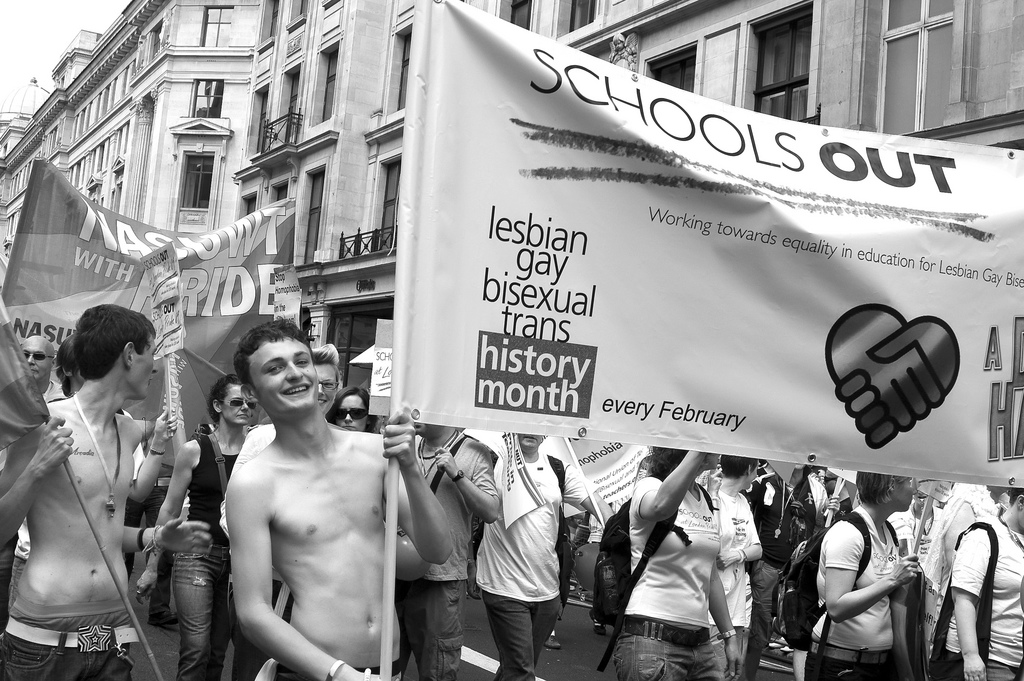This month we’re celebrating four unsung LGBT+ heroes from the UK as part of February’s LGBT History Month.
RightsInfo looks at how LGBT History Month began and the contribution of four LGBT+ activists to this movement, from representing the views of minority groups to campaigning to decriminalise homosexuality and providing safe open spaces for trans people and allies to have open dialogues.
Unsung LGBT+ Heroes From The UK
February is LGBT History Month, an annual event which began in the UK in 2005, with the aim of teaching the history of the gay rights movement and promoting equality and diversity for the benefit of the public.
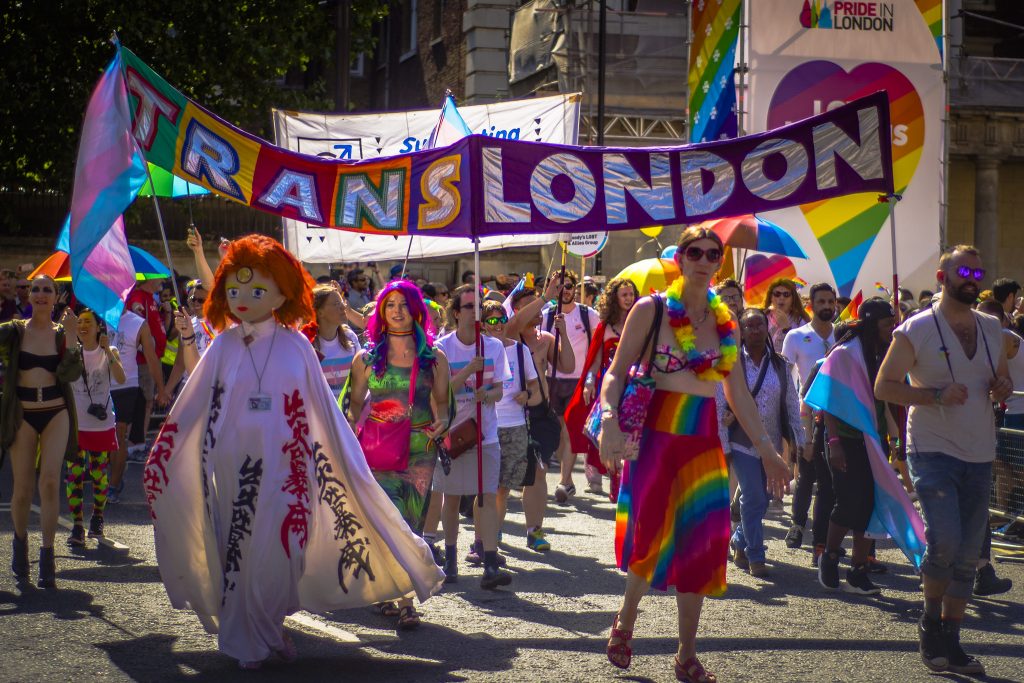
Image Credit: Dani Oliver / Flickr
February was chosen as LGBT History Month to coincide with the abolition of Section 28 of the 1988 Local Government Act in February 2003.
Section 28 stated that a local authority “shall not intentionally promote homosexuality or publish material with the intention of promoting homosexuality” or “promote the teaching in any maintained school of the acceptability of homosexuality as a pretended family relationship”.
The theme of LGBT History Month 2019 is Peace, Reconciliation and Activism. In celebration of this, here are four unsung activist heroes of British LGBT history.
Lady Phyll
Phyll Opoku-Gyimah, known to all as Lady Phyll, has given a voice to a generation of young black LGBT+ people who did not feel represented by the mainstream LGBT+ movement.
She is the Co-Founder and Executive Director of UK Black Pride, which was conceived as an event in 2005 to give a voice to the minority communities within the movement. UK Black Pride is one of the most diverse prides in Europe.
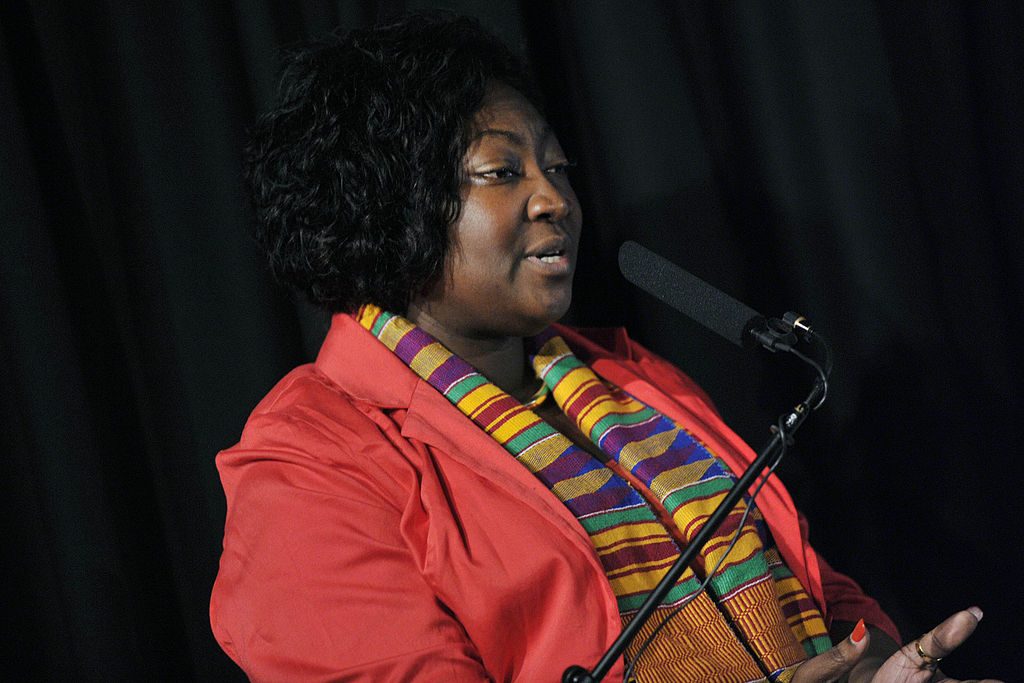
Lady Phyll has given a voice to a generation of young black people. Image credit: Wiki Commons
It has since expanded beyond a single event format to serve as a protest promoting “unity and co-operation among all Black people of African, Asian, Caribbean, Middle Eastern and Latin American descent, as well as their friends and families, who identify as Lesbian, Gay, Bisexual or Transgender.”
On her own personal experience, Lady Phyll has commented: “As a Black lesbian woman, I’ve experienced every prejudice, challenge and smack in the proverbial mouth you can imagine, from the workplace to any number of institutions and establishments.
Teach others that we deserve to take pride of place and feel safe, also protected, here and abroad.
Lady Phyll
“What I go through as a Black woman at work and society at large is well documented and so I use every opportunity to speak to others and understand their struggle to see where I can reflect on whether I contribute towards that struggle, and where I can speak out about, and fight against, discrimination that affects others.”
Lady Phyll calls on young LGBT+ people to “teach others that we deserve to take pride of place and feel safe, also protected, here and abroad” and allies to “step up, to listen, give up space, speak up and help us create a world where no one lives in fear due to prejudice and discrimination.”
Patrick Trevor-Roper
Patrick Trevor-Roper, known as T-R, was born in Northumberland in 1916. He was educated at Charterhouse, the University of Cambridge and the Westminster Medical School.
During the Second World War, he served in the Royal New Zealand Army Medical Corps before becoming a well-renowned specialist in ophthalmic surgery.
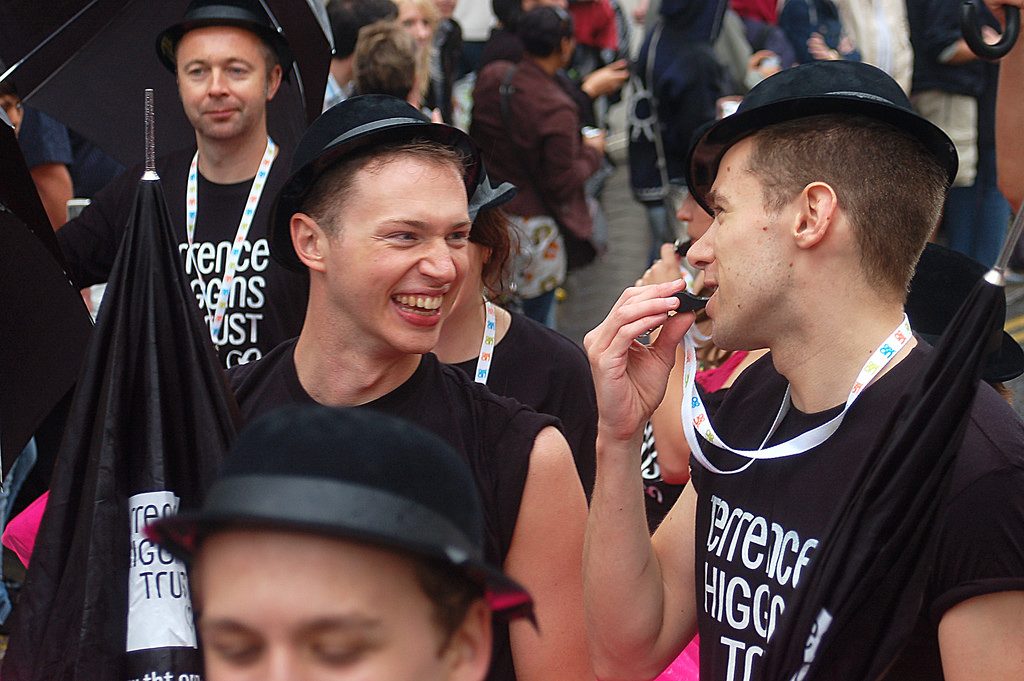
The Terrance Higgins Trust makes a huge impact today. Image Credit: Jason / Flickr
In 1955, he appeared before the Wolfenden Committee, which was set up to look into the question of homosexual offences. At this time, any homosexual activity between males was illegal. T-R told the committee that gay men posed no threat to heterosexual youth, and provided evidence of the extent of blackmail of homosexuals, which had led to many suicides.
His testimony helped persuade the committee to recommend that male homosexuality should be decriminalised, which was finally done, after a long political struggle, in 1967.
T-R remained an active gay rights activist and was one of the founders of the Terrence Higgins Trust, the UK’s leading AIDS service organisation. He also campaigned for the abolition of the discriminatory age of consent laws.
Katherine Gillespie Sells
Katherine Gillespie Sells is a psychotherapist and writer, as well as disability and LGBT rights campaigner.
Katherine was working as a ward sister when she contracted a virulent infection, similar to MRSA, as a result of a splinter in her finger and eventually needed to use a wheelchair. After becoming disabled she re-trained as a teacher completing a certificate in education at Middlesex University.
In 1990, she founded Regard, a national organisation for lesbians, gay men, bisexuals, transgender and queer people (LGBTQ) who self-identify as disabled.
Regard follows the social model of disability, as opposed to the medical model, which advocates a line of thinking that disability is caused by the way society is organised and that it must adapt and remove barriers denying inclusion and equal rights.
Charlie Craggs
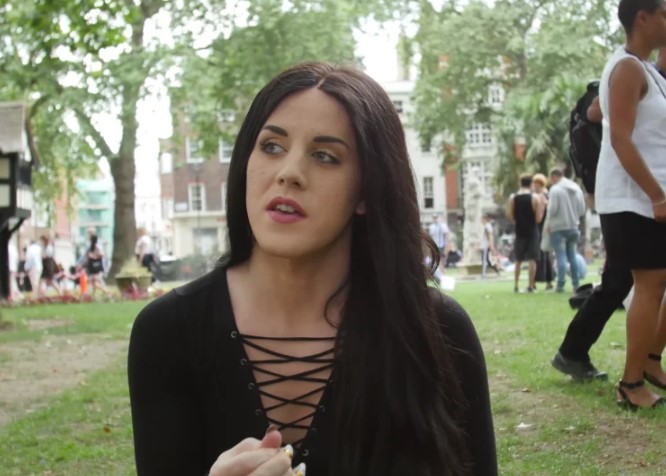
Charlie’s personalised approach to tackling trans rights has been praised. Image credit: Vimeo
Charlie Craggs is a trans activist from London and founder of Nail Transphobia.
Nail Transphobia began as an online campaign but has since become a travelling pop-up nail salon which educates and exposes people to trans issues while they have their nails painted, free of charge.
Charlie has commented that she believes by spending one-on-one time with people, she can better help humanise trans issues: “I saw that there was so much power in the physical and in conversation.”
Charlie uses a pop-up nail salon as an accessible safe place to hold these one on one discussions. She has so far painted thousands of people’s nails, talking to each person on a personal level, educating them on trans issues and making new allies.
I saw there was so much power in the physical and in conversation.
Charlie Craggs
Read more about how Britain welcomes LGBT+ immigrants here, and about why it isn’t acceptable to expect people to hide their sexuality in order to be culturally accepted in their home countries.
And here are nine inspirational transgender people, to give more insight into the work they do on to forward the conversations around transgender rights.

